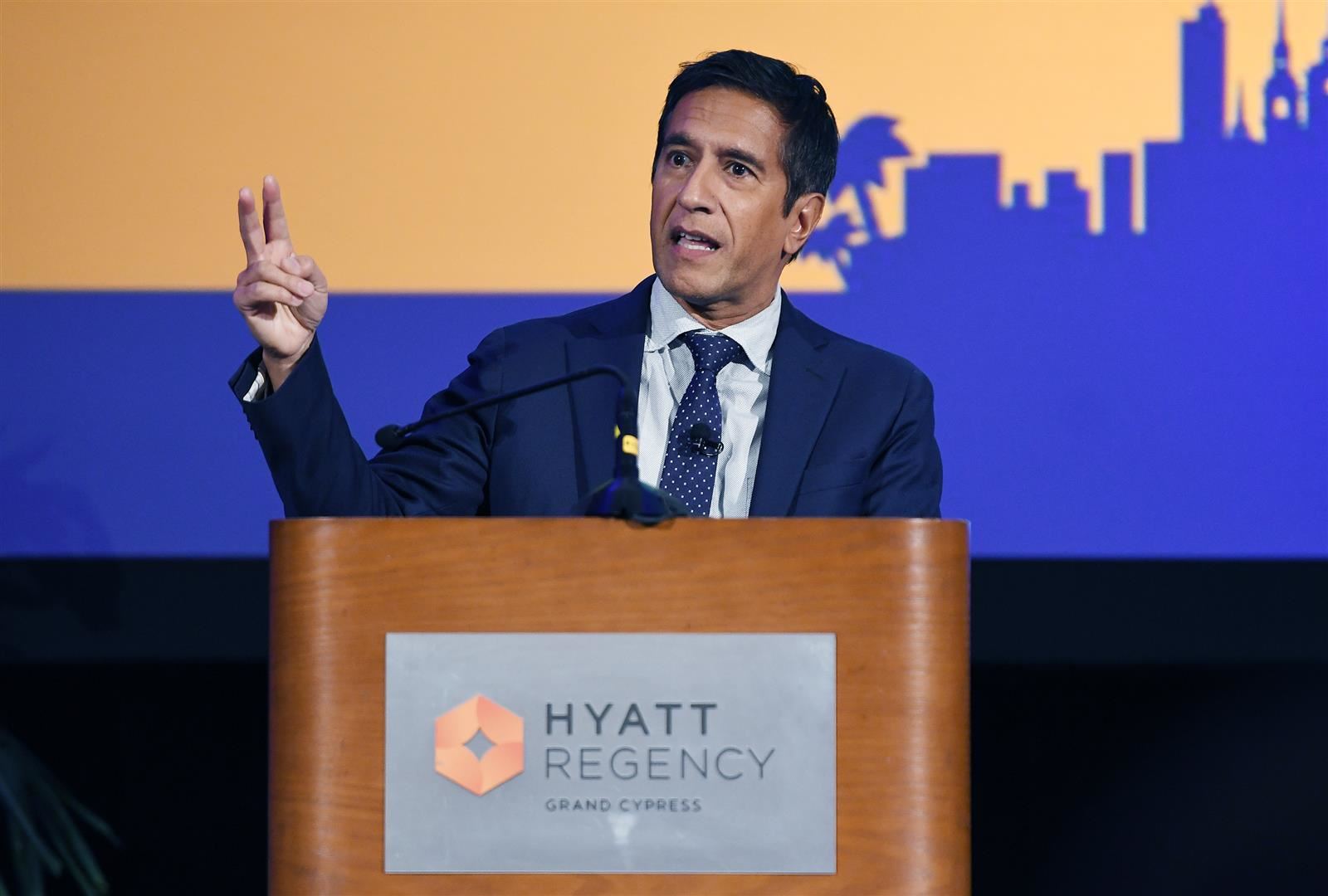- Council of the Great City Schools
- CNN Correspondent, Immigration Advocate & Social Justice Activist Address Council
Urban Educator - November/December 2022
Page Navigation
- Students in Most Urban Districts Hold Steady in Reading on National Test
- CNN Correspondent, Immigration Advocate & Social Justice Activist Address Council
- Politics and Public Education is the Focus of Council Town Hall
- Detroit Superintendent Named Urban Superintendent of the Year
- St. Paul Leader Tenure Extended; Omaha, Columbus, Wichita, Aurora Leaders to Depart
- Philanthropist Donates Millions to Chicago, Cleveland, Detroit, Fresno and Louisville
- Voters Decide on Ballot Measures
- Legislative Column
CNN Medical Expert Says It’s Time to Prepare for the Next Pandemic
-
ORLANDO—Speaking at the Council of the Great City Schools’ 66th Annual Fall Conference, Sanjay Gupta, neurosurgeon and chief medical correspondent for CNN, reflected on lessons learned from the coronavirus pandemic in terms of U.S. health policy and personal health.
Gupta noted that the United States, with less than 5 percent of the world’s population, suffered 1 million deaths – or about one in six deaths in a worldwide context.
“We know the two biggest risk factors for people to get severely ill or even die were age and preexisting conditions,” Gupta said. “This pandemic preyed on the old and the infirm, such as those who are overweight or who are diabetic. In this country, that’s more than half the population,” he noted.
“It’s a sad story,” he added, “a clarion call that we’ve got to improve the underlying health of the citizens of this country. Period.”

A few years back, Gupta visited the Tsimané, an indigenous tribe in the Amazon rain forest of Bolivia, identified in a medical journal as the healthiest people on the planet, with no evidence of chronic disease, heart disease, diabetes, or dementia. “The first thing I noticed,” he said, reflecting on that experience, “was that it is totally possible to live your life without getting any kind of disease. ... It’s not preordained for the diseases of aging to actually happen.”
He noted elements of the Tsimané lifestyle, saying the people don’t run, but they walk a lot – 17,000 steps a day on average. They don’t sit much, unless they are elderly; 70 percent of their diet comes from carbs – plantains and corn, with 30 percent split between protein and fat, with intermittent fasting from necessity. They get about nine hours of sleep a night.
“We spend $1 billion a day in the United States to take care of heart disease -- $1 billion a day,” Gupta said. “They don’t even have a healthcare system and they have basically no heart disease.”
Gupta said that among the many lessons to be learned from the pandemic, a major one would be the need for a robust and comprehensive pandemic preparedness plan like that established by President George W. Bush. That plan included virus hunters the world over and support for universal vaccines, but it faded in the years before COVID-19 emerged.
“Emerging pathogens are inevitable, pandemics are not. … It is possible with what we know now to essentially be pandemic proof,” Gupta added.
“There’s an obligation for every individual, as well – to take care of ourselves as best we can, physically, mentally and spiritually. We have more evidence than ever that it works,” he said.
Media Contact:
Contact Name
Contact@email.com
(000) 000-0000
Contact Name
Contact@email.com
(000) 000-0000
Contact Name
Contact@email.com
(000) 000-0000
Media Contact:
Contact Name
Contact@email.com
(000) 000-0000
Contact Name
Contact@email.com
(000) 000-0000
Contact Name
Contact@email.com
(000) 000-0000


